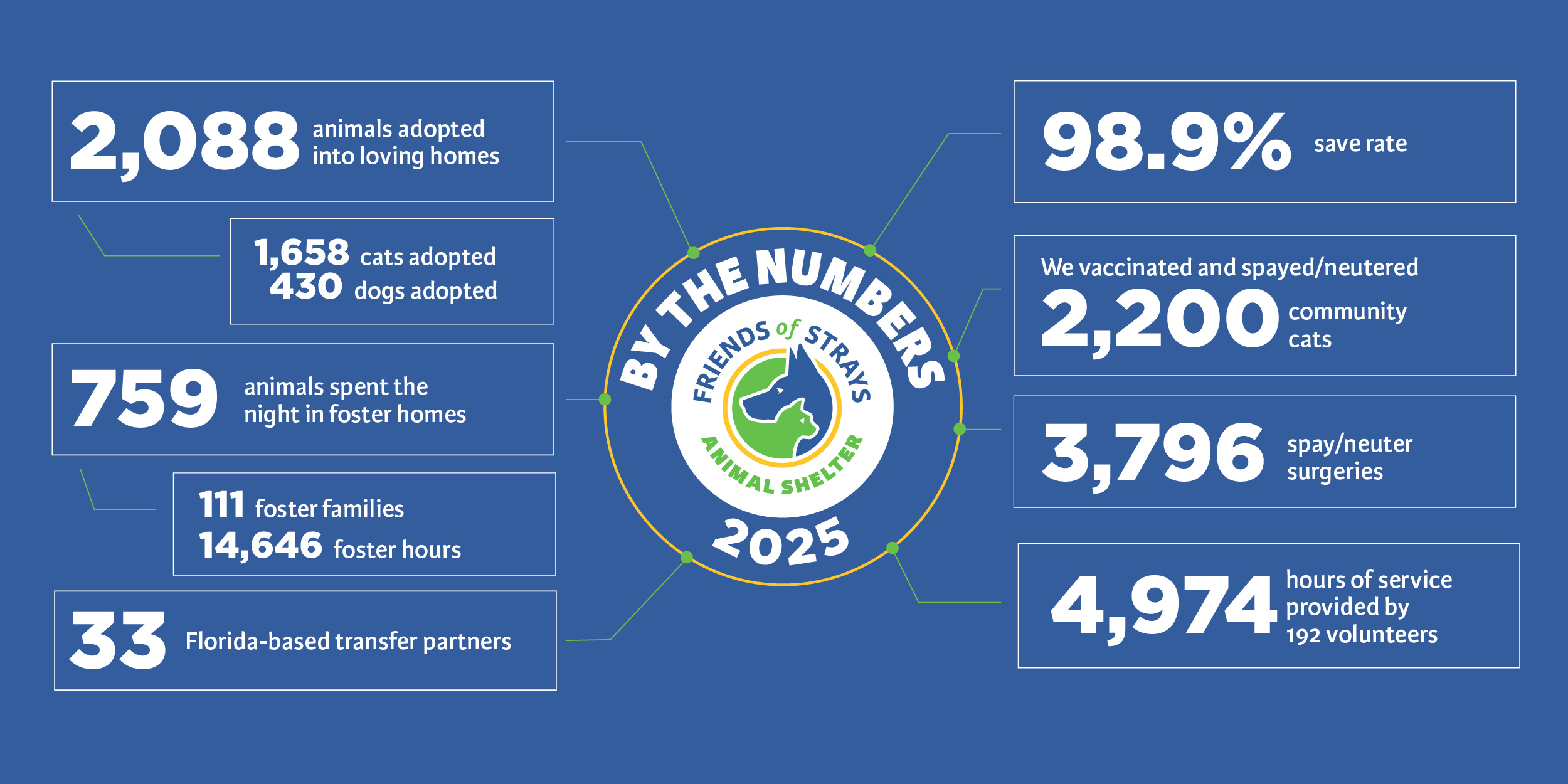Navigating Rental Agreements When Owning a Pet

Wednesday, September 11, 2024
Friends of Strays is fortunate to have supporters from all kinds of backgrounds. Eve Epstein-Ortiz is a member of the Board of Directors, and an attorney in the Tampa Bay area. Navigating pet ownership as a renter can be tricky. Eve leads us through some important terminology and information about what to look for in a lease before signing if you have a pet.
I once had an incredible orange tabby named Ben. He lived a long life, traveling with me to four different states and 11 different apartments. Each time I filled out a new rental application, I immediately reviewed the pet fee terms. My pet ownership rights were at the whim of the landlord. I was not alone. More than one out of every two Floridians lives with a pet, and more than one third are renters. Unlike some states, Florida does not have specific pet restrictions in its residential tenancy laws, meaning property managers and landlords have significant flexibility in deciding the rules around pets in their rental properties. This allows landlords to impose restrictions on the size, breed, and type of pets that tenants can keep. However, there are important legal protections in place for those who rely on service animals.
Understanding Pet Fees
For pet owners renting in Florida, additional expenses are often part of the deal. Landlords commonly charge extra fees, which can either be one-time payments or monthly additions to the rent. These fees generally fall into two categories: pet deposits and pet fees.
Pet Deposits: A pet deposit is an upfront payment that many renters assume will be returned if no damage occurs during their tenancy. However, the terms of the lease can vary widely. Some pet deposits are refundable, while others are non-refundable.
Pet Fees: Pet fees are typically non-refundable and are charged either as a one-time payment or as part of the monthly rent. These fees are intended to cover potential wear and tear caused by pets, although they can be expensive.
Given the flexibility Florida landlords have in setting terms, renters must thoroughly review their lease agreements. Don't assume that a deposit will be refunded; always clarify the conditions under which money will be returned. If the lease mentions a pet fee, check whether this is a recurring cost or a one-time charge. Making sure you have a copy of your lease is also vital, as this document is your primary legal protection in any disputes that may arise.
Tenants’ Rights
You may be wondering if there are different rules for tenants in your city and county. Not in Florida. On July 1, 2023, HB 1417, Residential Tenancies, went into effect preempting local governments from regulating landlord-tenant relationships. Florida landlords are free to set the rules for pets on their properties, and local laws can’t restrict these rules. However, that doesn’t mean that you don’t have federal protections if you have a disability.
Under both the Fair Housing Act (FHA) and the Americans with Disabilities Act (ADA), service animals must be permitted in rental properties, regardless of any pet restrictions a landlord may have. This means that even if a property has a "no pets" policy, they must accommodate service animals for tenants with disabilities. These laws ensure that individuals who need service animals for assistance are not unfairly discriminated against.
While Florida landlords have significant discretion in setting rental terms, tenants still have protections. If you feel that your rights as a tenant are being violated, whether through discrimination or unsafe living conditions, local resources are available to help. The Pinellas County Office of Human Rights, for instance, can assist with complaints related to housing discrimination or retaliation from landlords.
Conclusion
Renting with pets in Florida can be complex due to the lack of state-level restrictions on pet policies in rental properties. However, by understanding your lease, asking the right questions, and knowing your rights, you can navigate these challenges successfully. This proactive approach will help ensure that you and your furry friend enjoy a safe and secure living environment wherever you rent.

